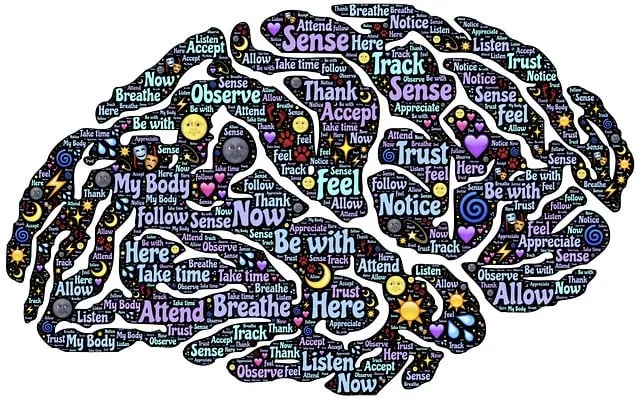The Centennial Kaiser Permanente mental health department, leveraging its vast patient data through advanced analytics and technology, plays a pivotal role in enhancing emotional well-being within the organization and community. By analyzing trends and needs, they tailor interventions, improve resource allocation, and power successful outreach programs for diverse populations. Their robust data management system, including standardized forms and digital platforms with strict privacy protocols, enables tailored support through programs like Mental Wellness Coaching and Education. Advanced statistical methods uncover hidden patterns, leading to personalized treatment plans and improved prediction of adverse outcomes. This data-driven approach informs clinical decisions, enhances patient care, and develops targeted interventions like Stress Management Workshops based on individual needs.
Mental health data analysis is a growing field, crucial for understanding complex patient needs. This article explores the process of interpreting data from the perspective of the Centennial Kaiser Permanente Mental Health Department, a leading example in this space. We delve into the comprehensive collection and management practices ensuring accuracy and privacy, while also highlighting advanced analysis techniques that provide deeper insights. Understanding these elements is key to enhancing clinical decisions and improving patient care, with significant impacts driven by the department’s innovative work.
- Understanding Mental Health Data: A Comprehensive Overview
- The Role of the Centennial Kaiser Permanente Mental Health Department
- Data Collection and Management: Ensuring Accuracy and Privacy
- Advanced Analysis Techniques for Deeper Insights
- Interpreting Results: Enhancing Clinical Decisions and Patient Care
Understanding Mental Health Data: A Comprehensive Overview

Understanding Mental Health Data provides a crucial foundation for any organization dedicated to improving emotional well-being, especially within a large healthcare network like Centennial Kaiser Permanente. The mental health department at Kaiser Permanente, with its extensive patient records and diverse service offerings, holds a treasure trove of insights into community needs and trends in mental health. Each patient interaction, from initial assessments to ongoing therapy sessions, generates data that can be meticulously analyzed to uncover patterns and correlations. This process involves sifting through vast datasets, identifying key indicators, and interpreting them within the context of individual patient journeys.
By delving into these data, Centennial Kaiser Permanente’s mental health experts can gain valuable insights into the effectiveness of various therapeutic approaches, identify emerging issues in the community, and tailor interventions to address specific needs. This data-driven approach ensures that resources are allocated efficiently, promoting positive thinking and emotional well-being through evidence-based practices. Moreover, it facilitates the implementation of successful Community Outreach Programs, enabling the mental health department to connect with diverse populations and offer tailored support, ultimately enhancing overall community resilience.
The Role of the Centennial Kaiser Permanente Mental Health Department

The Centennial Kaiser Permanente Mental Health Department plays a pivotal role in shaping and improving mental healthcare services within its community. With a dedicated team of professionals, they strive to provide comprehensive care and support to individuals facing various mental health challenges. This department is renowned for its innovative approaches, one such initiative being the Community Outreach Program Implementation, which aims to bridge the gap between healthcare and those who may be hard to reach.
Through this program, the mental health department enhances self-awareness exercises and promotes early intervention strategies. By fostering strong community ties, they ensure that at-risk individuals receive timely support. Additionally, the Centennial Kaiser Permanente team prioritizes risk management planning for mental health professionals, creating a safe and supportive environment where practitioners can offer their best care.
Data Collection and Management: Ensuring Accuracy and Privacy

Effective data collection and management are paramount in mental health analysis, especially when dealing with sensitive information. At the Centennial Kaiser Permanente mental health department, a robust system ensures accuracy and privacy, upholding ethical standards. This involves meticulous record-keeping, where each patient interaction is documented meticulously, preserving the integrity of the data.
The department leverages advanced technology to streamline data collection, employing standardized forms and digital platforms that capture comprehensive patient profiles. This methodical approach not only maintains confidentiality but also facilitates efficient analysis, empowering mental health professionals to offer tailored support. Furthermore, strict privacy protocols are in place, adhering to legal guidelines, ensuring the secure storage and sharing of patient records, particularly when pursuing initiatives like Mental Wellness Coaching Programs Development or designing Mental Health Education Programs. Even with these measures, anxiety relief remains a key focus, fostering an environment where patients feel safe to share their experiences.
Advanced Analysis Techniques for Deeper Insights

The Centennial Kaiser Permanente mental health department has been at the forefront of leveraging advanced data analysis techniques to gain deeper insights into patient well-being. By employing sophisticated statistical methods and machine learning algorithms, the department is able to uncover hidden patterns and trends within vast datasets. This enables them to offer more personalized treatment plans, tailored to individual needs. For instance, their analyses have shed light on specific risk factors associated with various mental health conditions, enhancing the department’s ability to predict and prevent adverse outcomes.
Beyond these technical advancements, fostering positive thinking and emotional intelligence among mental health professionals is a key aspect of their approach. The Centennial Kaiser Permanente department recognizes that empowering caregivers with effective coping mechanisms contributes directly to improved patient care. Additionally, they conduct comprehensive risk assessments, ensuring that practitioners are equipped to handle complex cases and provide timely interventions. These holistic strategies complement the advanced data analysis, fostering an environment conducive to optimal mental health outcomes for all patients served by the department.
Interpreting Results: Enhancing Clinical Decisions and Patient Care

Interpreting data from the Centennial Kaiser Permanente mental health department’s extensive records offers invaluable insights that directly impact clinical decisions and patient care. By analyzing trends, patterns, and individual patient journeys, healthcare professionals can tailor interventions more effectively. This data-driven approach enables the Mental Health Education Programs Design team to develop targeted Stress Management Workshops Organization strategies, ensuring that care aligns with each patient’s unique needs.
For instance, emotional regulation techniques can be personalized based on whether a patient responds positively to cognitive behavioral therapy or benefits more from mindfulness practices. This level of customization enhances treatment outcomes and promotes better overall well-being for patients. The Centennial Kaiser Permanente mental health department number serves as a powerful tool in this process, facilitating the continuous improvement of patient care and clinical practice.
The analysis and interpretation of mental health data are pivotal in enhancing patient care, as highlighted by the comprehensive insights from the Centennial Kaiser Permanente Mental Health Department. This article has explored various aspects, from understanding complex datasets to implementing advanced analysis techniques. By ensuring robust data collection and management practices, including stringent privacy measures, healthcare professionals can gain deeper insights that inform clinical decisions. As we navigate an era of increasing digital health resources, these strategies, coupled with the expertise of specialized departments like the Centennial Kaiser Permanente Mental Health Department (serving over 10 million patients), are transforming mental health care, ultimately improving patient outcomes and well-being.






